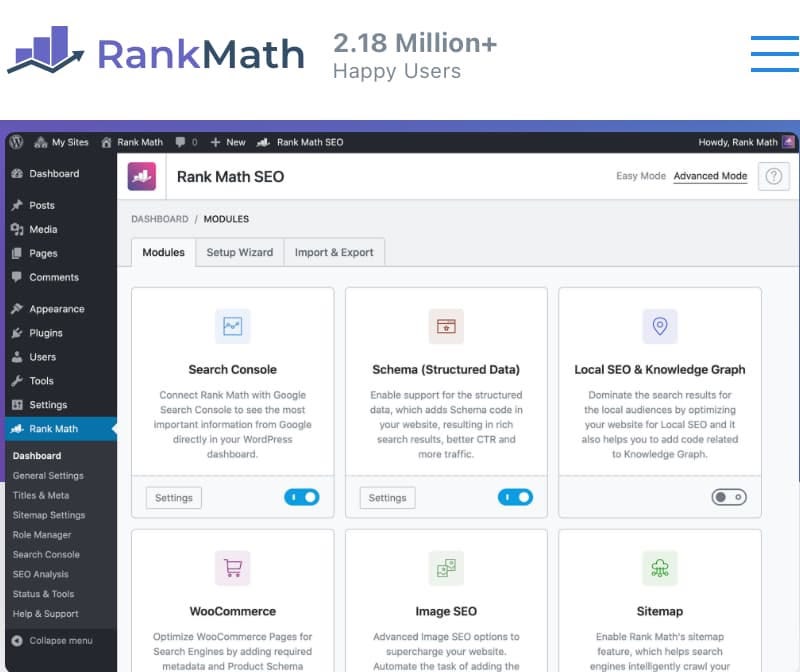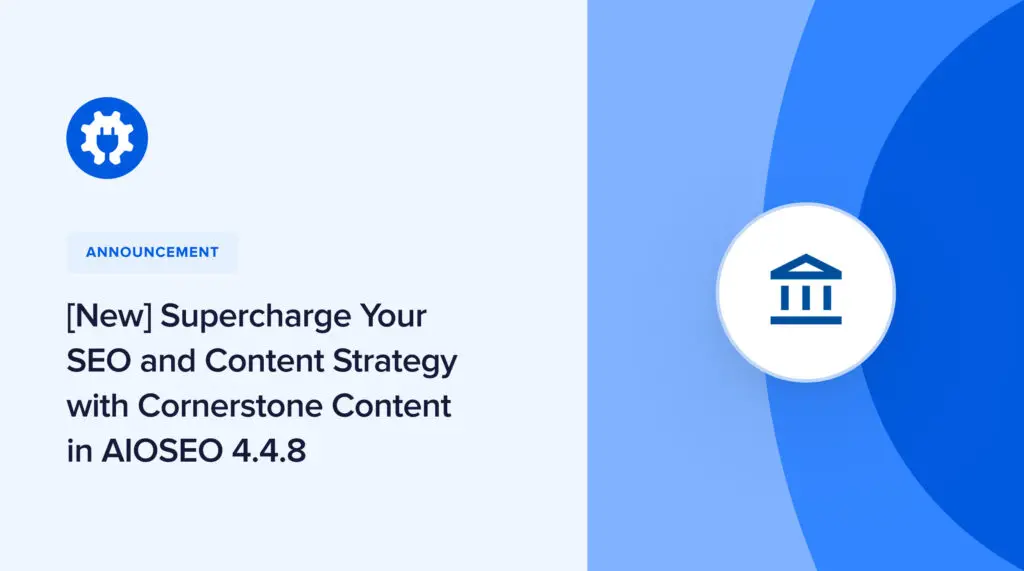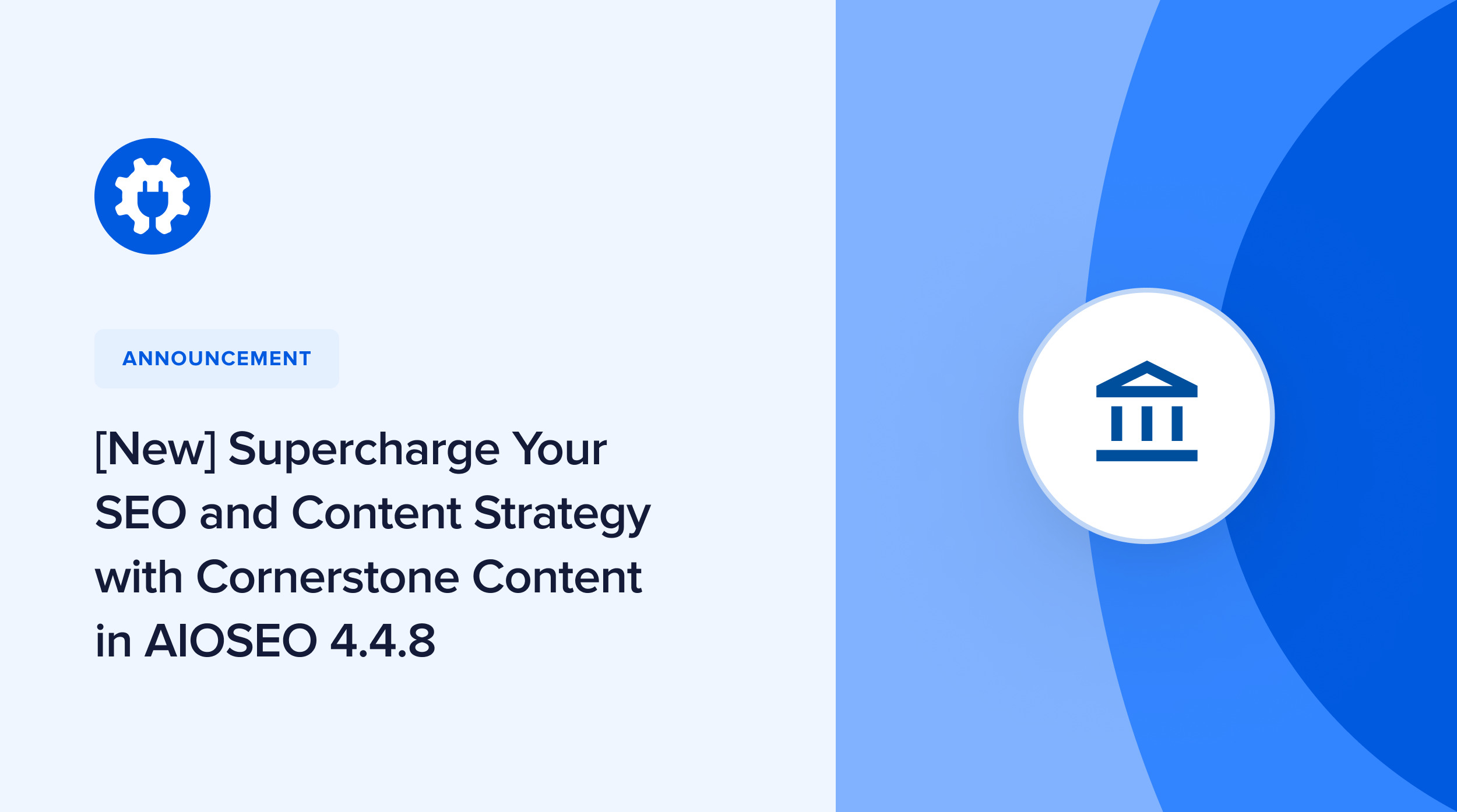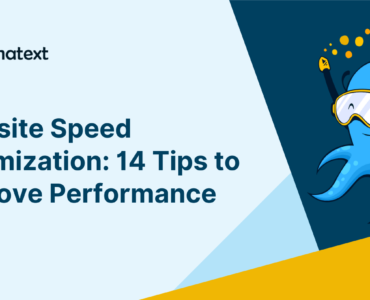Supercharge Your Website with Seo for WordPress Beginners Tutorial!
In this tutorial, you will learn SEO for WordPress beginners. You’ll discover the basics of optimizing your WordPress site for search engines, including keyword research, on-page optimization, and technical SEO.
Building your website on WordPress gives you the advantage of its SEO-friendly structure, making it easier to improve your site’s visibility and rankings. With the right strategies in place, you can attract more organic traffic and grow your online presence.
By following this tutorial, you’ll be equipped with the essential knowledge and tools to kickstart your SEO journey on WordPress and set a solid foundation for long-term success. Let’s dive in and unlock the potential of your WordPress website with effective SEO techniques.

Credit: medium.com
Understanding Seo
Understanding SEO is crucial for anyone venturing into the realm of online presence. Whether you are a business owner or a blogger, having a grasp of SEO can significantly impact the visibility of your website. In this section, we will delve into the fundamental aspects of SEO and why it holds immense significance in the digital landscape.
What Is Seo?
SEO, or Search Engine Optimization, is the practice of optimizing your website to enhance its visibility and ranking in search engine results. This involves employing strategic techniques to ensure that search engines, such as Google, can comprehend and index your website effectively. By optimizing your site for search engines, you can attract more organic traffic and improve your online presence.
Why Seo Is Important For Online Visibility
SEO is vital for enhancing the online visibility and reach of your website. When your site appears high in search engine rankings, it is more likely to be noticed by potential visitors. Without SEO, your website may get buried in the vast pool of online content, thus diminishing its visibility. By implementing SEO strategies, you can increase your website’s exposure and attract targeted traffic, which is essential for business growth, brand recognition, and audience engagement.
How Search Engines Rank Websites
Search engines rank websites based on specific criteria such as relevancy, authority, and user experience. Each search engine uses complex algorithms that evaluate numerous factors to determine the ranking of websites. These factors include quality content, relevant keywords, backlinks, site speed, mobile-friendliness, and user engagement. By understanding how search engines evaluate websites, you can strategically optimize your site to enhance its ranking and visibility.

Credit: aioseo.com
Getting Started With Seo For WordPress
Getting started with SEO for WordPress can seem daunting, but with the right guidance, you can navigate the world of search engine optimization. In this tutorial, we will walk through the essential steps to kickstart your SEO efforts on your WordPress website.
Installing An Seo Plugin
When it comes to optimizing your WordPress site for search engines, an SEO plugin is a crucial tool. Yoast SEO and All in One SEO Pack are popular choices due to their user-friendly interface and robust features. To install an SEO plugin, navigate to your WordPress dashboard, click on “Plugins”, then “Add New”. Search for your preferred SEO plugin, install, and activate it.
Configuring Basic Seo Settings
After installing the SEO plugin, it’s essential to configure the basic settings. These include adding your website’s title and meta description, setting up XML sitemaps, and configuring social media integration. Access the SEO plugin’s settings from the WordPress dashboard and follow the on-screen prompts to complete these vital configurations.
Optimizing Website Structure And Navigation
Optimizing your website’s structure and navigation is crucial for search engine visibility. Ensure that your website is easy to navigate for visitors and search engine crawlers alike. This involves creating clear and intuitive navigation menus, optimizing internal linking, and organizing your content into categories and tags for better indexing.
By adhering to these essential steps, you can kickstart your SEO efforts for your WordPress website. Stay tuned for more advanced techniques to further enhance your site’s search engine presence.
Keyword Research And Optimization
Keyword research and optimization play a crucial role in making your WordPress website succeed in search engine rankings. By understanding the importance of keywords, utilizing the right tools for research, and optimizing your website content effectively, you can greatly improve your chances of getting discovered by your target audience. Let’s delve into each aspect in more detail.
Understanding The Importance Of Keywords
Keywords are the words or phrases that internet users enter into search engines when looking for information or products. By incorporating relevant and targeted keywords into your website content, you increase the visibility of your site in search engine results pages (SERPs). This means that when users search for terms related to your business, your website has a higher chance of appearing in the top results, driving valuable organic traffic to your site.
Tools For Keyword Research
To conduct effective keyword research, several tools are available to help you identify the most relevant and popular keywords for your website. Some notable tools include:
- Google Keyword Planner: A free tool provided by Google that enables you to generate keyword ideas, check keyword search volume, and discover new keywords related to your niche.
- SEMrush: A comprehensive keyword research tool that provides valuable insights into keywords, including their search volume, organic competition, and potential traffic you can gain.
- Ahrefs: Another powerful tool that allows you to perform in-depth keyword research, analyze keyword difficulty, and find related keywords.
By utilizing these tools, you can identify the most valuable keywords to target, helping you optimize your content effectively.
Optimizing Your Website Content With Keywords
When it comes to optimizing your website content with keywords, ensure that every H3 heading adheres to HTML syntax. HTML syntax can be represented as follows:
Optimizing Your Website Content with Keywords
Additionally, you need to incorporate keywords naturally throughout your content to avoid keyword stuffing, which can negatively impact your website’s performance. Here are some best practices to optimize your content:
- Identify primary and secondary keywords to target in each page’s content.
- Include keywords in your page title, meta description, and URL.
- Integrate keywords naturally into your headings and subheadings while following HTML syntax.
- Create informative and engaging content that satisfies user intent while incorporating relevant keywords.
- Ensure keyword density is reasonable and doesn’t compromise the readability and fluidity of your content.
By following these optimization techniques, you can make your content more search engine-friendly and increase its chances of ranking higher in SERPs.

Credit: aioseo.com
On-page Seo Techniques
When it comes to optimizing your WordPress website for SEO, implementing effective on-page techniques is crucial. On-page SEO involves optimizing various elements of your web pages to improve their visibility in search engine results. In this article, we will explore three key on-page SEO techniques for beginners: optimizing titles and meta descriptions, using heading tags correctly, and optimizing images for SEO.
Optimizing Titles And Meta Descriptions
Titles and meta descriptions play a crucial role in attracting users to click on your website in search engine results. The title of your page should accurately depict its content and include relevant keywords, preferably near the beginning. An attention-grabbing meta description should provide a concise summary of the page’s content and entice users to click through.
Using Heading Tags Correctly
Heading tags, such as H1, H2, and H3, are important not only for structuring your content but also for SEO. Search engines use heading tags to understand the hierarchical structure of your page. Proper usage of heading tags helps search engines identify the main topics and subtopics on your page. Use only one H1 tag for the main heading of your page, followed by H2 tags for subheadings and H3 tags for further subdivisions.
Optimizing Images For Seo
Images enhance the visual appeal of your website, but they can also impact SEO. To optimize images for SEO, it is essential to adhere to HTML syntax for each H3 heading. Include relevant keywords in the file name and alt text of your images to provide search engines with context about the visual content. Compressing images to reduce their file size ensures faster page loading times, another crucial factor for SEO.
Implementing these on-page SEO techniques will help improve the search engine visibility and overall performance of your WordPress website. By optimizing titles and meta descriptions, using heading tags correctly, and optimizing images for SEO, you lay a strong foundation for attracting organic traffic and enhancing user experience.
Off-page Seo Strategies
Off-page SEO strategies are essential to boost your website’s visibility and authority in search engine rankings. These strategies focus on factors that occur outside your website, such as building high-quality backlinks, utilizing social media marketing, and engaging in guest blogging and influencer outreach. By implementing these tactics, you can enhance your site’s online presence and drive more organic traffic. Let’s delve into each of these strategies to understand their importance and how they can contribute to your SEO success.
Building High-quality Backlinks
One of the most important off-page SEO strategies is the building of high-quality backlinks. Backlinks are links from external websites that point to your own site. High-quality backlinks are those that originate from authoritative and relevant sources. These backlinks act as a vote of confidence for your website, signaling to search engines that your content is valuable and trustworthy.
There are several ways to build high-quality backlinks:
- Reach out to industry influencers or bloggers in your niche and request them to link back to your site.
- Create outstanding, shareable content that naturally attracts backlinks from other websites.
- Participate in online forums and communities, leaving links to relevant content when appropriate.
Social Media Marketing For Seo
Social media marketing plays a crucial role in off-page SEO. Social signals can impact search engine rankings, as search engines view social engagement as an indication of a website’s popularity and relevance. By effectively utilizing social media platforms, you can enhance your SEO efforts and drive more organic traffic to your website.
Here is how you can use social media marketing for SEO:
- Share your content regularly on platforms where your target audience is most active.
- Engage with your followers, responding to their comments and questions.
- Encourage social sharing by adding social sharing buttons to your website’s content.
- Collaborate with influencers in your industry to expand your reach and gain more exposure.
Guest Blogging And Influencer Outreach
Guest blogging and influencer outreach are powerful off-page SEO strategies that can significantly boost your website’s visibility and authority. By contributing valuable content to external websites and collaborating with influencers, you can gain exposure to a wider audience and build valuable connections within your industry.
Follow these best practices for guest blogging and influencer outreach:
- Identify authoritative websites and blogs in your niche that accept guest posts.
- Reach out to them with a compelling pitch, showcasing your expertise and the value you can provide.
- Create high-quality, informative guest posts that provide value and incorporate relevant links back to your website.
- Engage with influencers in your industry by commenting on their posts and sharing their content.
Measuring Seo Success
Achieving SEO success for a WordPress beginner involves tracking key metrics like organic traffic, keyword ranking, and backlinks. Using tools like Google Analytics and Search Console helps to measure the performance and adjust strategies accordingly. It’s essential to focus on content quality and relevance to enhance visibility and engagement.
In order to determine the effectiveness of your SEO efforts, it is essential to measure SEO success. This involves tracking various metrics and analyzing data to make informed decisions. By understanding SEO metrics, utilizing tools like Google Analytics, and monitoring keyword rankings, you can gain valuable insights into the performance of your WordPress website.
Understanding Seo Metrics
SEO metrics provide quantitative data that helps you evaluate the impact of your SEO efforts. It is crucial to grasp the significance of these metrics to improve your website’s visibility and search engine rankings. Some key SEO metrics to pay attention to include:
- Organic Traffic: The number of visitors who found your website through organic search results.
- Page Ranking: The position of your webpages in the search engine results pages (SERPs).
- Click-Through Rate (CTR): The percentage of users who click on your website’s link when it appears in the search results.
- Bounce Rate: The percentage of visitors who leave your website after viewing only one page.
- Conversion Rate: The percentage of visitors who complete a desired action, such as making a purchase or filling out a form.
Using Google Analytics For Tracking Website Traffic
Google Analytics is a powerful tool that allows you to track and analyze your website’s traffic. By integrating it with your WordPress site, you can gain valuable insights into how users interact with your content. Here are some steps to leverage Google Analytics effectively:
- Create a Google Analytics account and obtain your tracking code.
- Install a Google Analytics plugin on your WordPress website, such as “MonsterInsights.”
- Connect your Google Analytics account with the plugin and enter your tracking code.
- Start tracking your website’s performance through Google Analytics.
With Google Analytics, you can measure key metrics such as the number of sessions, pageviews, average session duration, and traffic sources. Analyzing this data will help you identify areas for improvement and optimize your SEO strategy.
Monitoring Keyword Rankings
Keywords play a vital role in SEO, as they help search engines understand the relevance of your content. By monitoring keyword rankings, you can assess the effectiveness of your keyword optimization and identify opportunities for further improvement. Here are some methods to monitor your keyword rankings:
- Use SEO tools like SEMrush, Ahrefs, or Moz to track keyword rankings.
- Regularly check your website’s ranking positions for target keywords.
- Analyze the search volume and competition level for each keyword.
- Optimize your content based on keyword performance and search intent.
By keeping a close eye on your keyword rankings, you can ensure that your WordPress website is continuously optimized for better search engine visibility.
Frequently Asked Questions For Seo For WordPress Beginners Tutorial
How To Do Seo In WordPress?
To do SEO in WordPress, install an SEO plugin like Yoast or Rank Math. Optimize meta titles, descriptions, and URLs. Use keywords naturally in content and headings. Improve site speed and mobile responsiveness. Create a sitemap and submit it to search engines.
Regularly publish high-quality content.
How Can I Start Seo As A Beginner?
To start SEO as a beginner, follow these steps: 1. Research and identify relevant keywords for your website. 2. Optimize your website’s on-page elements like title tags, meta descriptions, and headers. 3. Create high-quality, valuable content that appeals to your target audience and incorporates the chosen keywords.
4. Build backlinks from reputable websites to improve your site’s authority. 5. Regularly monitor and analyze your SEO performance using tools like Google Analytics.
Is Seo Easy With WordPress?
SEO with WordPress is relatively easy due to its built-in features and plugins. Basic optimization tasks like meta tagging, keyword targeting, and content optimization are simplified. However, advanced SEO strategies require additional efforts like backlink building, site speed optimization, and technical SEO.
Overall, WordPress offers a user-friendly platform for effective SEO.
What Is The Easiest Seo Plugin For WordPress?
The easiest SEO plugin for WordPress is Yoast SEO. It helps optimize your website for search engines, improve your rankings, and attract more visitors. With its user-friendly interface, Yoast SEO provides valuable suggestions and guidance to optimize your content effectively.
Conclusion
To sum up, this WordPress SEO beginners tutorial provides valuable insights for optimizing your website and improving its visibility on search engines. By implementing the techniques discussed, you can enhance your site’s chances of ranking higher in search results, attracting more organic traffic, and ultimately, increasing your online presence.
With a user-friendly approach, you’ll be able to navigate the world of SEO with ease and achieve your goals successfully. Keep learning, experimenting, and adapting to stay ahead in the ever-evolving SEO landscape.
Related Posts
Recent Posts
- Optimizing Images for SEO and Page Speed: Boost Your Website’s Performance!
- Seo for Local Businesses Step-By-Step Guide: Boost Your Online Success Today!
- The Role of Content Clusters in Modern SEO: Boost Your Rankings
- Supercharge Your SEO Success with High-Quality Backlinks
- Impact of User Experience on SEO Rankings: Boost Your Website’s Performance
Recent Comments
Archives
Categories
Categories
- Blog(40)
- Local SEO(1)
- On-Page SEO(1)
- SEO(7)
- SEO Optimization(1)





